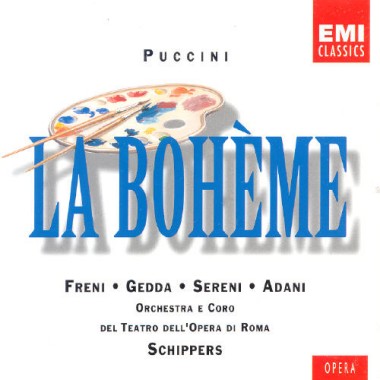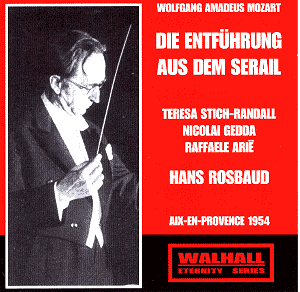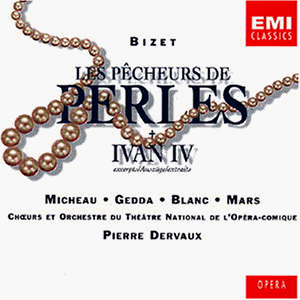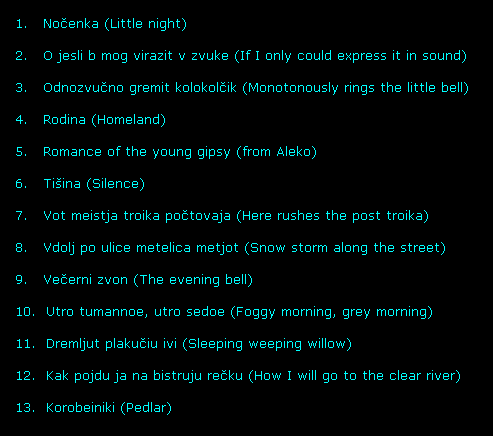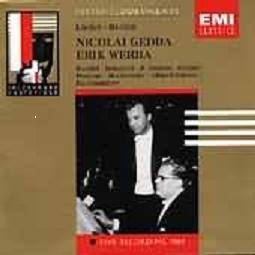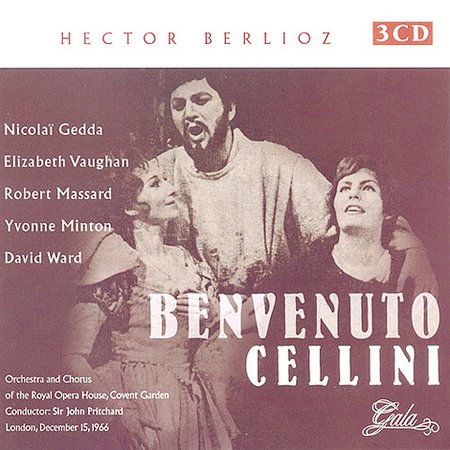24) Daniel Francois Espritt Aubert Fra Diavolo - recording
Mood:
 mischievious
Topic: 024) Fra Diavolo, 1984
mischievious
Topic: 024) Fra Diavolo, 1984
Fra Diavolo ....... Nicolai Gedda
Lord Cockburn ..... Rémi Corazza
Lady Pamela ....... Jane Berbié
Lorenzo ........... Thierry Dran
Mathéo ............ Jules Bastin
Zerline ........... Mady Mesplé
Giacomo ........... Michel Trempont
Beppo ............. Michel Hamel
Francesco ......... Michel Marimpouy
Un Soldat ......... Régis Ducrocq
Ensemble Choral Jean Leforge
Orchestre Philharmonique de Monte-Carlo
Marc Soustrot, conductor
Recorded: Monte-Carlo, Salle Garnier, 20-26 Sept 1983 & 13 June 1984
SYNOPSIS:
--------
The original of the story of "Fra Diavolo“is to he found in Lesueur’s opera, “La Caverne,” afterwards arranged as a spectacular piece and produced in Paris in 1808 by Cuvellier and Franconi, and again in Vienna in 1822 as a spectacle-pantomime, under the title of "The Robber of the Abruzzi.“In Scribe’s adaptation the bandit, Fra Diavolo, encounters an English nobleman and his pretty and susceptible wife, Lord and Lady Allcash, at the inn of Terracina, kept by Matteo, whose daughter Zerlina is loved by Lorenzo, a young soldier, on the eve of starting to capture Fra Diavolo when the action of the opera begins.
In the first scene the English couple enter in great alarm, having narrowly escaped the robbery of all their valuables by Fra Diavolo’s band. The bandit himself, who has followed them on their journey in the disguise of a marquis, and has been particularly attentive to the lady, enters the inn
as Lord Allcash has been reproving his ‘wife for her familiarity with a stranger. A quarrel ensues in a duet of a very humorous character (“I don’t. object”). Upon the entrance of Fra Diavolo, a quintet (“Oh, Rapture unbounded!”) occurs, which is one of the most effective and admirably harmonized ensembles Auber has ever written. Fra Diavolo learns the trick by which they saved the most of their valuables, and, enraged at the failure of his band, lays his own plan to secure them. In an interview with Zerlina, she, mistaking him for the Marquis, tells him the story of Fra Diavolo in a romanza (“On yonder Rock reclining”), which is so fresh, vigorous, and full of color, that it has become a favorite the world over. To further his schemes, Fra Diavolo makes love to Lady Allcash and sings a graceful barcarole to her (“The Gondolier, fond Passion’s Slave”), accompanying himself on the mandolin. Lord Allcash interrupts the song, and the trio, “Bravi, Bravi,” occurs, which leads up to the finale of the act. Fra Diavolo eludes the carbineers, who have returned, and they resume their search for him, leaving him unmolested to perfect his plans for the robbery.
The second act introduces Zerlina in her chamber about to retire. She first lights Lord and Lady Allcash to their room, a running conversation occurring between them in a trio (“Let us, I pray, good wife, to rest”), ‘which is one of the best numbers in the work. Before Zerlina returns to her chamber, Fra Diavolo and his companions, Beppo and Giacomo, conceal themselves in a closet, and, somewhat in violation of dramatic consistency, Fra Diavolo sings the beautiful serenade, “Young Agnes,” which had been agreed upon as a signal to his comrades that the coast was clear. Zerlina enters and after a pretty cavatina (“ ‘T is To-morrow”) and a prayer, charming for its simplicity (“Oh, Holy Virgin”), retires to rest. The robbers, in attempting to cross her room, partially arouse her. One of them rushes to the bed to stab her, but falls back awestricken as she murmurs her prayer and sinks to rest again. The trio which marks this scene, sung pianissimo, is quaint and simple and yet very dramatic. The noise of the carbineers returning outside interrupts the plan of the robbers. They conceal themselves in the closet again. Zerlina rises and dresses herself. Lord and Lady Allcash rush in en déshabillé to find out the cause of the uproar. Lorenzo enters to greet Zerlina, when a sudden noise in the closet disturbs the company. Fra Diavolo, knowing he will be detected, boldly steps out into the room and declares that he is there to keep an appointment with Zerlina. Lorenzo challenges him, and he promises to give him satisfaction in the morning, and coolly effects his escape. One of his comrades, however, is captured, and to secure his own liberty agrees to betray his chief.
The third act introduces Fra Diavolo once more among his native mountains, and there is the real breath and vigor of the mountain air in his opening song (“Proudly and wide my Standard flies”), and rollicking freedom in the rondeau which follows it (“Then since Life glides so fast away”). He exults in his liberty, and gleefully looks forward to a meeting with Lord and Lady Allcash, which he anticipates will redound to his personal profit. His exultation is interrupted by the entrance of the villagers arrayed in festival attire in honor of the approaching wedding ceremonies, singing a bright pastoral chorus (“Oh, Holy Virgin! bright and fair”). The finale of the act is occupied with the development of the scheme between Lorenzo, Beppo, and Giacomo, to ensnare Fra Diavolo and compass his death; and with the final tragedy, in which Fra Diavolo meets his doom at the hands of the carbineers, but not before he has declared Zerlina’s innocence. This finale is strong and very dramatic, and yet at the same time simple, natural, and unstudied. The opera itself has always been a favorite, not alone for its naturalness and quiet grace, but for the bright and even boisterous humor, which is displayed by the typical English tourist, who was for the first time introduced in opera by Scribe. The text is full of spirit and gayety, and these qualities are admirably reflected in the sparkling music of Auber. How well it was adapted for musical treatment is shown by the fact that “Fra Diavolo” made Auber’s reputation at the Opera Comique.

LINK: DOWNLOAD
